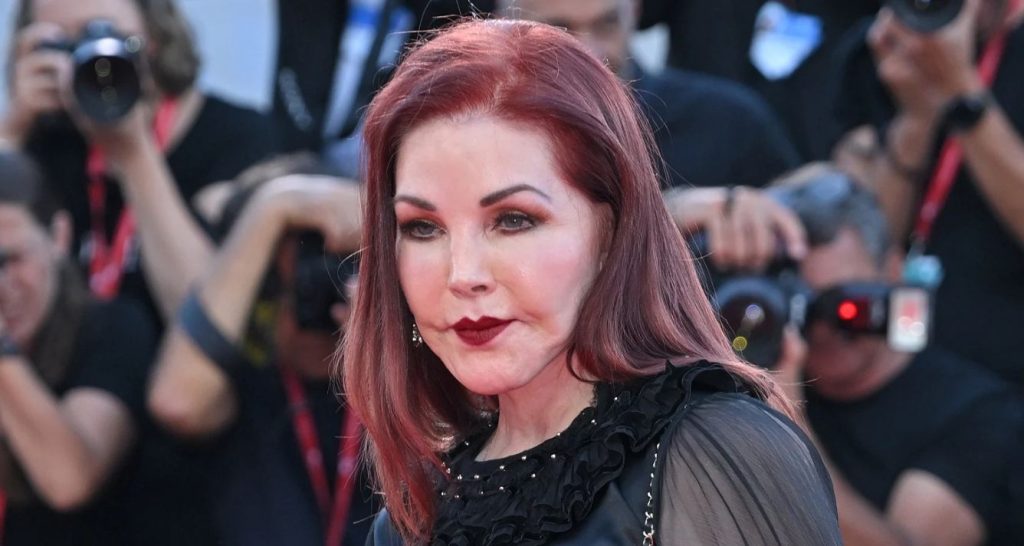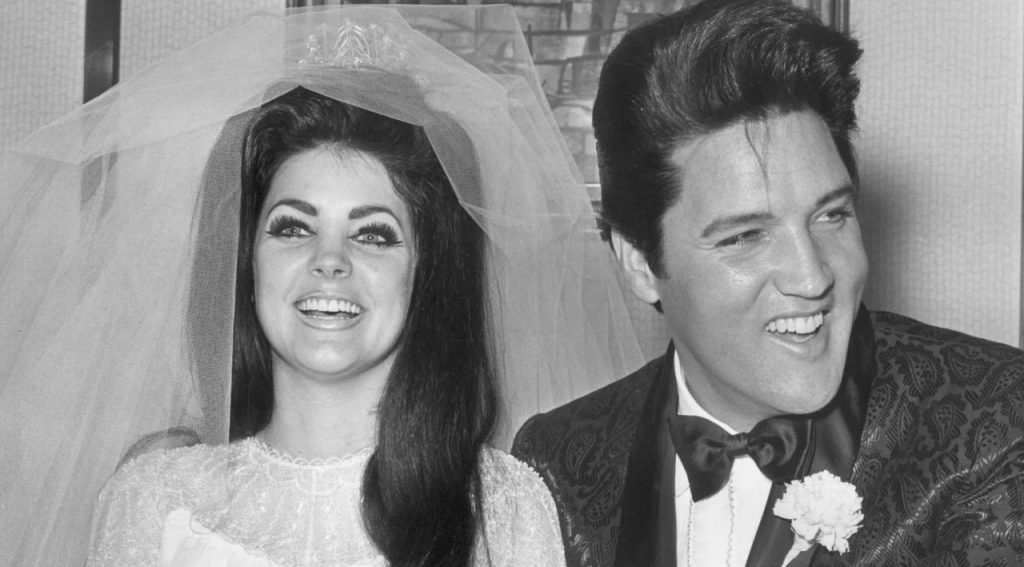For decades, listeners have speculated that Elvis Presley never truly passed in 1977. Tales about sightings, secret lives, or hidden retreats have circulated in news headlines, fan forums, and social media alike. These theories often suggest that he faked his own departure from the public eye—to escape both fame and the pressures that followed his rise.
Priscilla Presley, now 80, has addressed these stories directly. In interviews tied to her upcoming memoir Softly, As I Leave You: Life After Elvis, she acknowledges that such conspiracy theories remain widespread. She notes particularly those claiming he is “still alive somewhere, hidden away.” Yet, Priscilla leaves no room for doubt: the reality of his death is something she carries every day.

A Personal Take
Priscilla shares what she truly feels about the ongoing myths. “I wish he was still alive,” she says, capturing longing rather than belief. She emphasizes that there is nothing factual behind the rumors—no hidden communications or secret sightings she can confirm. Her role as someone close to him gives her a unique vantage point on both who he was in private and how he is remembered publicly. She also talks about how his temperament has sometimes been misrepresented. Some dramatizations—films, books, narrative retellings—have amplified his anger or mood swings. Priscilla concedes that yes, he had a temper, but she insists it never crossed into violence. She recalls one moment with Colonel Parker where he lifted a chair in frustration, then almost immediately regretted it. That moment, she says, is more representative of their real lives together than many dramatized scenes.
Grieving & Record Keeping
Much of Priscilla’s recent activity—in interviews, memoirs, public statements—feels rooted in memory and loss. She reflects on her daughter’s death in 2023, the absence of a partner who shaped much of her early adult life, and the experiences they shared in public and private spaces. These reflections bring clarity to her motives: preserving legacy and truth as she saw it, rather than letting rumors distort her memories. The memoir sets a tone of remembrance over sensationalism. It aims to fill in what was personal: daily interactions, small gestures, off-camera moments that defined their shared years. Priscilla refers back often to documented facts—photographs, letters, interviews—to contrast with claims that lack verification.

Public Impact & Representation
The stories people repeat about Elvis being alive can serve as a kind of cultural comfort, especially for those who admired him. But Priscilla believes letting unverified rumors stand unchecked can be unfair—not only to Elvis but to those left behind. She worries that dramatized versions of his personality: moments labeled as abusive, or characterizations that omit context, may mislead younger generations. Her stance isn’t about silencing fans or dismissing their feelings. Rather, it’s about accuracy. She expresses hope that with her memoir, people will see the difference between myth and memory. She wants readers to understand both the man who captivated millions and the human being with strengths, flaws, love, and pain—for himself, his relationships, and the legacy he left.

















